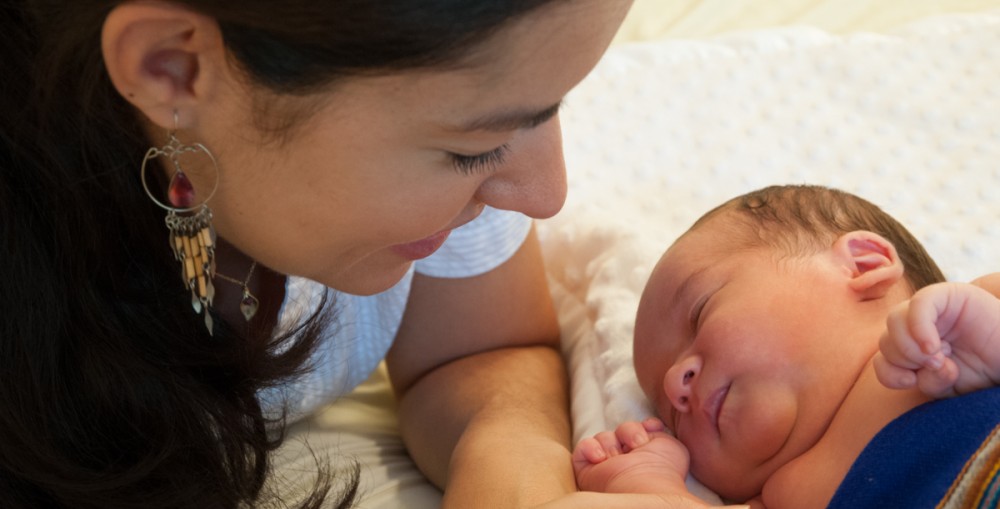In another one of my classes, we talked about adoption and it occurred to me that it’s quite relevant to our class. In this instance I am speaking of giving a child up for adoption right after birth. In many states, the mother is not allowed to consent to adoption for up to 72 hours. Meaning that even if a mother wants to give her child up for adoption right after birth, she cannot legally do so until three days after the baby is born. I think this is very interesting because the mother would either have to care for the child for three days and then give it up or have the child be taken care of by the state until the timer is up.
I saw this kind of like the abortion debate. Clearly different, but still a woman is being coerced by the government to take care of and keep a child she does not want. Even if a woman is sure she does not want to, or cannot afford to keep the child, caring for the child for three days could be very confusing. I’ve included a link that lists each state and when the birth mother can consent to adoption. Do you all think this is a way for the state to convince a mother to keep a child or if having a time frame is ok?
http://www.adoptionbirthmothers.com/adoption-truth/adoption-facts-faqs/adoption-laws-by-state/

This is definitely similar to the regulation of abortion. The government is regulating the woman’s decision and is failing to realize that women can make their own rational decisions without a set time frame. I think it’s ridiculous to assume that a pregnant woman considering adoption hasn’t been thinking about her choice for a long time already. Caring for a newborn for those extra three days would be incredibly emotionally straining, not to mention the financial issues this would cause. I don’t think the government has any place in convincing people to be parents and it should place more trust in women as rational beings.
I really had no clue that such laws existed. I think that is interesting that in reality there is a wait period because, going back to media portrayal, one would think it was an instant occurrence. I can recall countless times where I was viewing a television program or a movie and the depict a mother giving birth and then the child screaming being removed from her arms never to be seen again. I’m wondering how long states have had these required wait periods for women, is this recent or has this always been the case? If this was more recent that would explain the narrative, but media could also be portraying it that way to make the separation all the more dramatic. That stated, even thinking of the ways that most of my knowledge of birth has come from media such as television or movies is quite problematic. I know its not the responsibility of the entertainment industry to be accurate with their depictions of life events. However, I just imagine so many people using media as a primary source for their information about things. In a way, I could imagine a mother thinking it would be easier to separate from her child if, he or she was taken immediately from her after birth. So, I could imagine it would be a great surprise to find out that instead of the child being immediately removed from your room, you need to care for her or him for three days. I do see however, what governments are trying to do in encouraging a mother to stay with her child though. My parents are my birth parents so I have the privilege of never having had to know what it feels like to be adopted and maybe consider that your parent(s) did not love you enough to care for you or what have you. I know that it is way more things than money that can influence the decision to put a child up for adoption. Thus, I do not think anything gives the government license to regulate how long you must wait to put your child up for adoption. It is no small decision to put one’s unborn child up for adoption, so having to care for said child for 3 days does seem cruel. However, I cannot help but feel like their intentions are not coming from a place of complete malice. The intent behind what they are doing is noble but in practice it is quite problematic.
I actually have heard about this rule in some states, but did not quite understand it. I think it may stem from questioning of the abilities of a woman who just went through the labor and delivery process to make a clear and rational decision. Also, I believe it attempts, although a little misguidedly, to give a woman the opportunity to change her mind regarding adoption after seeing her baby. Maybe, there are high rates of women who are lined up for adoption during pregnancy and then change their mind quickly after delivery. However, I believe this is their right and these rates will always exist. In that sense, I am against this law, as well. I would be curious to look at if there is any differentiation between women who have an adoptive parent lined up already during pregnancy and those who may give their child away to foster care. If this decision is made well in advance, I do not see the emotional or physical benefit in this law, which instead harms both mother and child. Also, I would like to research whether this law stands in instances where the adoptive parents are actually present at the birth. If the same law stands, then it may drive a rift between the birth mother and the adoptive parents, making it clear the distinction and the passing of the child’s rights from one to another.